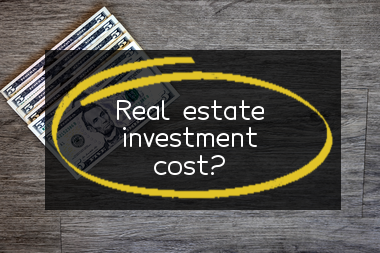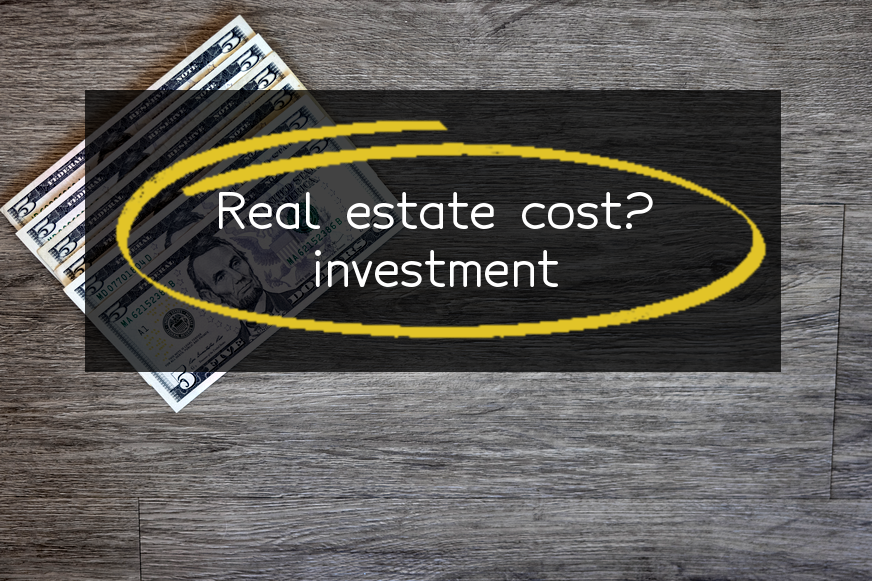The amount of money you need to invest in real estate depends on several factors such as, the type of property you want to invest in, the location, financing options available, and how much profit you want to make.
- 1. Type of property: The type of property you invest in affects the amount of money required. Some options include single-family homes, multi-family apartments, commercial buildings, raw land, or vacation rentals.
- 2. Location: The location of the property plays a significant role in determining how much you need to invest. Properties in high-end areas are usually more expensive than those in low-end areas, and they offer high-income potential. The location also affects the financing options available.
- 3. Financing options: Before investing in a property, you need to consider the financing options available, such as a mortgage, hard money loan, private lender, etc. The financing option you choose determines the down payment amount and closing costs.
- 4. Profit: The amount of profit you want to make from the investment is also a crucial factor in determining how much money you need to invest. If you plan on buying a property and refurbishing it to sell, you need to factor in the labor and material costs.
In general, the minimum amount you need to invest in real estate is usually 20% of the property's purchase price. You will also need to factor in closing costs, insurance, taxes, and ongoing maintenance expenses. However, if you cannot invest the minimum amount, you can still invest in real estate by partnering with other investors or using creative financing options like lease options, seller financing or rent-to-own agreements.
In conclusion, the amount of money you need to invest in real estate varies depending on the factors mentioned above. It is essential to do thorough research on the property type, location, financing options, and profit potential before investing to ensure success.
The first question a newbie should ask
- 1) What is my budget? - Before even browsing for properties, it is important to determine your budget for buying or renting a property.
- 2) What are my must-have features? - Consider which features you need in a home, such as the number of bedrooms or a yard, and which features you can compromise on.
- 3) How important is the location? - Location can play a significant role in the price and value of a property, so it's important to consider factors such as proximity to important amenities, schools, and commuter routes.
- 4) What is the current state of the real estate market? - Understanding the current trends in the real estate market can give you a better idea of the price range and availability of properties in your desired area.
- 5) Should I work with a real estate agent? - A real estate agent can provide valuable guidance and expertise in navigating the buying or renting process, so it's worth considering whether to hire one.
Answering these questions will help the newbie to better understand their needs, desires and constraints, and ultimately, make informed decisions about their real estate needs.
Why padding your savings is critical
Padding your savings is critical when it comes to real estate because real estate is a significant investment that requires a lot of money upfront. Whether you are purchasing a home or investing in a property, you need to have a substantial amount of money to cover the down payment, closing costs, and other fees related to buying or investing in real estate. Here are a few reasons why padding your savings is critical when it comes to real estate.
- 1. You need to have a solid cash reserve.
When buying or investing in real estate, it is essential to have a cash reserve in case of emergencies. Unexpected repairs, vacancies, or economic shocks can cause financial strain if you do not have a cash reserve to fall back on. Having a solid cash reserve ensures that you can cover unexpected costs, maintain cash flow, and weather any challenges that arise during your real estate journey.
- 2You don't want to overleverage.
While real estate can be a lucrative investment, it can also be risky if you overleverage. Overleveraging means taking on too much debt relative to your income or cash flow. If you don't have enough savings, you may be tempted to borrow more money than you can afford, which can lead to financial trouble down the line. Padding your savings enables you to avoid overleveraging and make more sound financial decisions.
- 3You can take advantage of more opportunities.
When you have a substantial amount of savings, you can take advantage of more opportunities that come your way. For example, if you have enough savings for an all-cash purchase, you may be able to buy a property at a discount, which can provide you with more significant long-term gains. You can also take advantage of low-interest rates and make a larger down payment, which can help you save money on interest over the life of the loan.
In summary, padding your savings is critical when it comes to real estate because it provides you with a solid cash reserve, enables you to avoid overleverage, and allows you to take advantage of more significant opportunities. By being financially prepared, you can position yourself for long-term success in the real estate market.
Preparing financially to buy an investment property
Buying a real estate property as an investment requires careful consideration and planning to ensure financial stability. Here are some steps to prepare financially to buy an investment property:
- 1Determine your financial standing: Know exactly how much money you have and what are your sources of income. Calculate your monthly expenses, savings, and debts.
- 2Identify your investment goals: Determine why you want to buy an investment property, whether it's for long-term capital appreciation, rental income, or a combination of both.
- 3Do your research and create a budget: Research the real estate market and determine how much you are willing to spend and what type of property suits your investment goals. Build a budget that includes the cost of property acquisition, closing and holding costs, renovation or repair expenses, and ongoing maintenance costs.
- 4Improve your credit score and reduce debt: A good credit score can help you secure a favorable mortgage rate. Pay off or reduce non-mortgage debts to improve your credit score and reduce your debt-to-income ratio.
- 5Build up your savings: Invest in a high-yield savings account or other low-risk options to build up your cash reserves for a down payment, closing costs, and other expenses.
- 6Secure pre-approval for financing: Get pre-approved for a mortgage loan, so you know how much you can afford to borrow and the type of loan that best suits your needs.
- 7Find a real estate agent: Look for an experienced agent who knows the local market, understands your investment goals, and can help you navigate the buying process.
Finally, it's essential to evaluate the potential risks and returns associated with investing in real estate. Seek professional advice from financial advisors, lenders, and attorneys to ensure you make informed decisions and minimize potential setbacks.
How to get started investing in real estate
As an aspiring real estate investor, there are several steps you can take to get started investing in real estate:
- 1Set Your Goals: The first step for any aspiring real estate investor is to clearly define the goals that they want to achieve by investing in real estate. Whether it is for long-term wealth creation or short-term financial gains, it helps if you set specific goals around your investment.
- 2Learn the Basics: Before you get started, its essential to do your research and learn the basics of real estate investing. There are various books, courses, and online resources that can help you understand the fundamental concepts of real estate investing.
- 3Choose Your Strategy: Once you understand the basics of real estate investing, its time to choose your investment strategy. You could opt for buying and holding real estate, flipping properties for a quick profit, or investing in real estate funds.
- 4Build Your Network: Having a strong network of professionals in the real estate industry can help you
- 5Develop a Business Plan: Creating a business plan can help you organize your thoughts, understand your market, and plan your investments.
- 6Ensure Adequate Financing: Real estate investment requires substantial financial resources, and you need to have the right financing options in place.
- 7Find the Right Property: Finding the right property is essential for successful real estate investment. You can use online tools, real estate agents, or attend auctions and other events to find suitable properties.
- 8Make an Offer: Once you have found the right property, make an offer that you feel is fair and in line with your goals.
- 9Close the Deal: Once the offer has been accepted, you need to close the deal by completing the necessary paperwork and making the payments.
- 10Manage Your Investment: Finally, you need to manage your investment effectively, including rental management, maintenance, and ongoing financial management. With the right approach, real estate investment can be an excellent way to create long-term wealth and financial stability.
Feeling Financially Overwhelmed? You Might Need a Financial Advisor
Nevertheless, I can provide some insights into the concept of financial overwhelm and the role of a financial advisor in real estate.
Financial overwhelm is a state of being where an individual feels burdened by their financial situation. It can manifest in different ways, such as having too much debt, insufficient savings, difficulty managing expenses, or uncertain investment choices. It can cause stress, anxiety, and even physical and mental health problems.
Real estate is often a significant part of an individual's financial portfolio, whether as a primary residence or an investment property. However, navigating the complexities of the real estate market requires knowledge, experience, and careful planning.
In this context, a financial advisor can be a valuable resource for someone feeling financially overwhelmed. A financial advisor is a professional who can provide objective, personalized advice and guidance on how to manage and grow one's wealth. They can help clients create a plan, set realistic goals, and make informed decisions about real estate investments based on their financial objectives and risk tolerance.
A financial advisor can also assist in understanding mortgage options, tax implications, property management, and other aspects of real estate ownership. They can monitor market trends, provide ongoing support, and adjust the plan as needed to adapt to changing circumstances or achieve new goals.
Overall, a financial advisor can help alleviate financial overwhelm and provide a roadmap for a secure and successful real estate journey. However, it's essential to choose a reputable and trustworthy advisor who has the necessary qualifications, experience, and ethics to match your needs and goals.
Just one more thing: if you liked the article, please like us on social media and share this article with friends.



